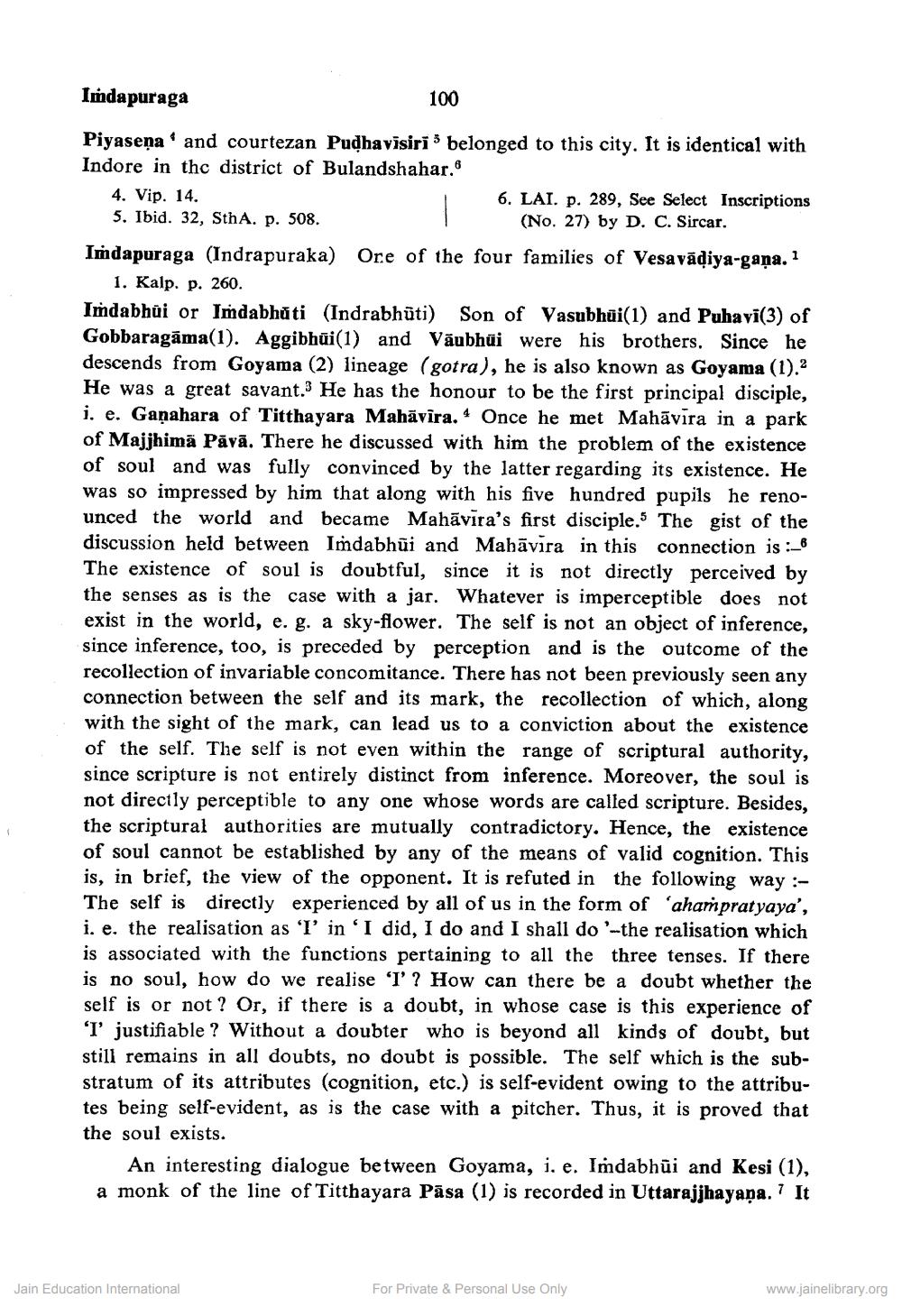________________
Indapuraga
100
Piyaseña and courtezan Pudhavisiri belonged to this city. It is identical with Indore in the district of Bulandshahar. 4. Vip. 14.
6. LAI. p. 289, See Select Inscriptions 5. Ibid. 32, SthA. P. 508.
(No. 27) by D. C. Sircar. Imdapuraga (IndrapurakaOre of the four families of Vesavādiya-gana. 1
1. Kalp. p. 260. Imdabhūi or Imdabhūti (Indrabhūti) Son of Vasubhūi(1) and Puhavi(3) of Gobbaragāma(1). Aggibhūi(1) and Vāubhüi were his brothers. Since he descends from Goyama (2) lineage (gotra), he is also known as Goyama (1). He was a great savant. He has the honour to be the first principal disciple, i. e. Ganahara of Titthayara Mahāvīra. 4 Once he met Mahāvira in a park of Majjhimā Pāvā. There he discussed with him the problem of the existence of soul and was fully convinced by the latter regarding its existence. He was so impressed by him that along with his five hundred pupils he renounced the world and became Mahāvira's first disciple. The gist of the discussion held between Imdabhūi and Mahāvira in this connection is :_6 The existence of soul is doubtful, since it is not directly perceived by the senses as is the case with a jar. Whatever is imperceptible does not exist in the world, e. g. a sky-flower. The self is not an object of inference, since inference, too, is preceded by perception and is the outcome of the recollection of invariable concomitance. There has not been previously seen any connection between the self and its mark, the recollection of which, along with the sight of the mark, can lead us to a conviction about the existence of the self. The self is not even within the range of scriptural authority, since scripture is not entirely distinct from inference. Moreover, the soul is not directly perceptible to any one whose words are called scripture. Besides, the scriptural authorities are mutually contradictory. Hence, the existence of soul cannot be established by any of the means of valid cognition. This is, in brief, the view of the opponent. It is refuted in the following way :The self is directly experienced by all of us in the form of 'ahampratyaya', i. e. the realisation as I in I did, I do and I shall do'-the realisation which is associated with the functions pertaining to all the three tenses. If there is no soul, how do we realise l'? How can there be a doubt whether the self is or not? Or, if there is a doubt, in whose case is this experience of
l' justifiable? Without a doubter who is beyond all kinds of doubt, but still remains in all doubts, no doubt is possible. The self which is the substratum of its attributes (cognition, etc.) is self-evident owing to the attributes being self-evident, as is the case with a pitcher. Thus, it is proved that the soul exists.
An interesting dialogue between Goyama, i. e. Imdabhūi and Kesi (1), a monk of the line of Titthayara Pāsa (1) is recorded in Uttarajjhayapa.' It
Jain Education International
For Private & Personal Use Only
www.jainelibrary.org




